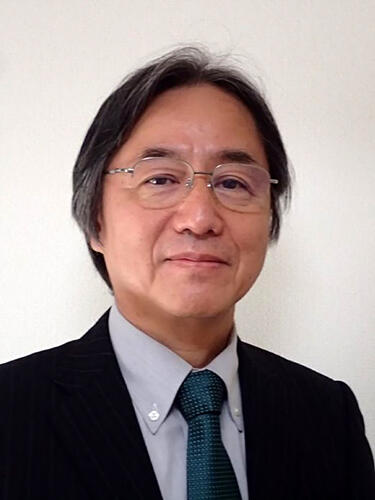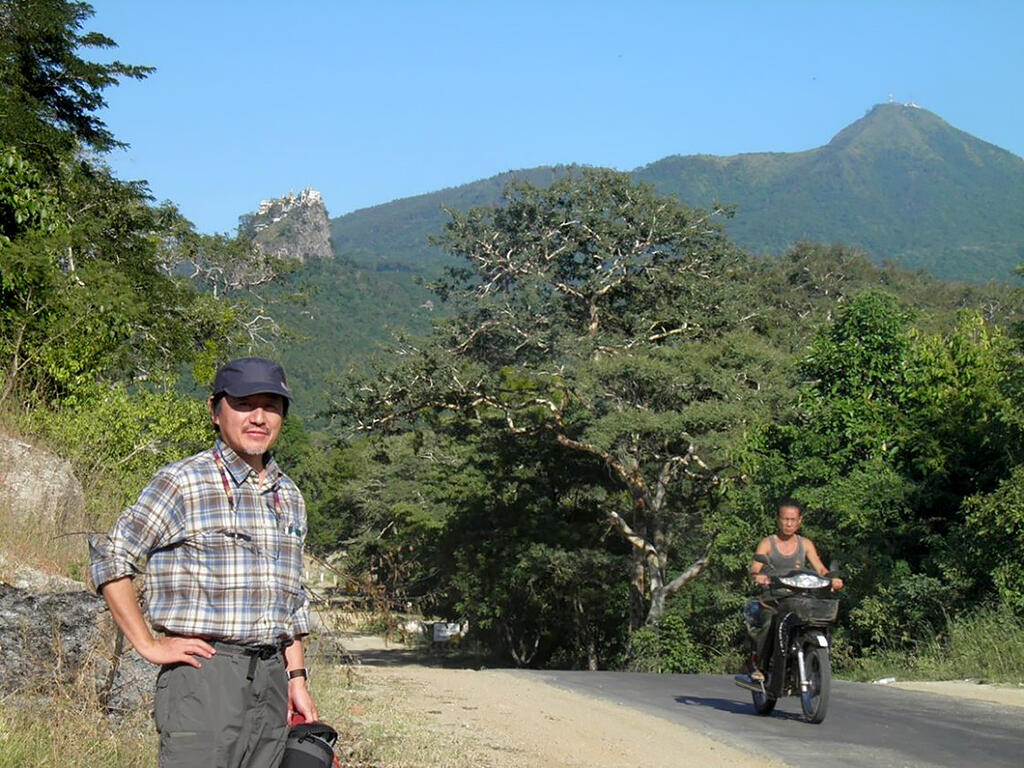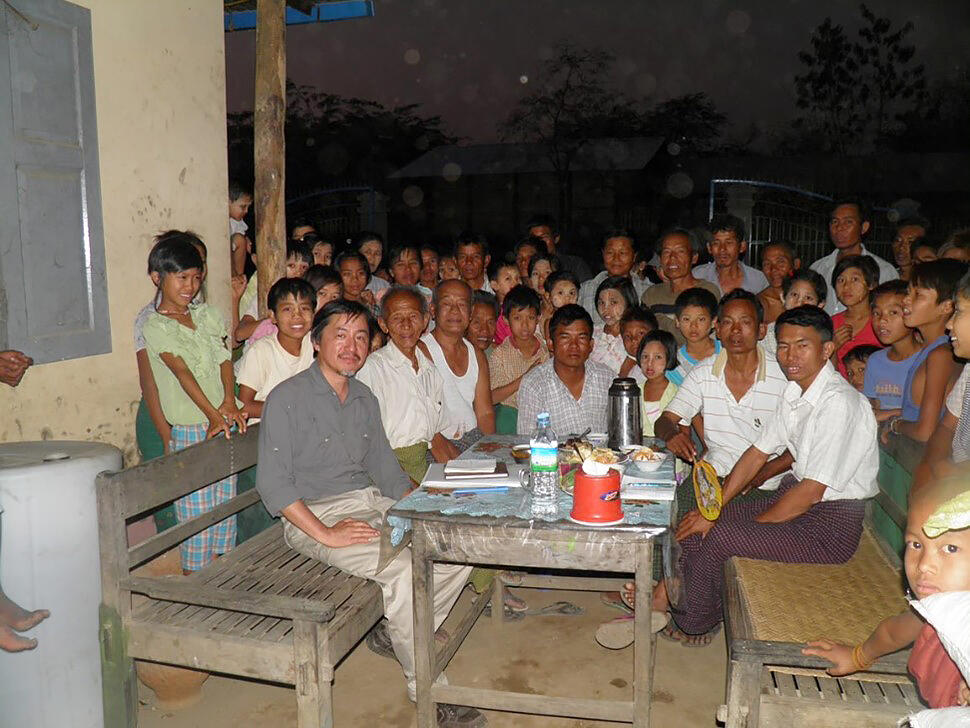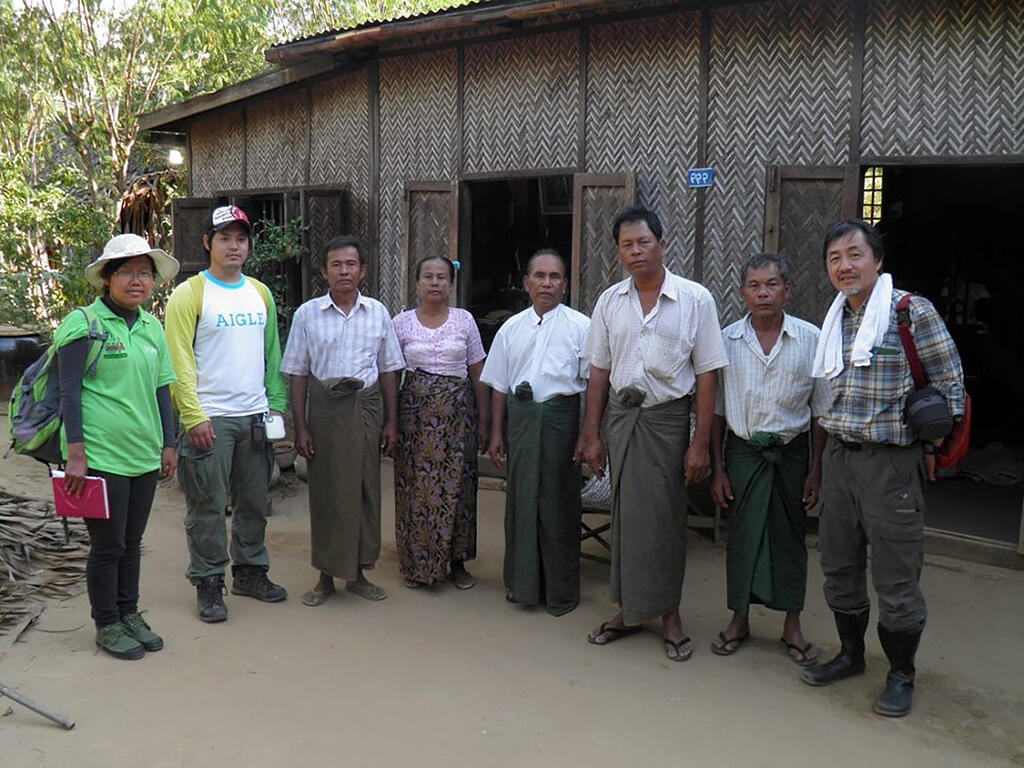When we think of forests, we often picture a vast, lush green group of trees that provide a home to millions upon millions of different flora and fauna. However, we sometimes fail to consider that the benefits of forests extend far beyond the organisms that live in it. By absorbing the carbon dioxide in the atmosphere, making the air more breathable, and providing a wealth of important resources, forests have played a key role in ensuring the survival and development of humans on this planet.
It is this important interaction between forests and the communities that live around them that is the main research focus of Professor Mamoru Kanzaki from the Forest Resources and Society Lab, Kyoto University. Prof. Kanzaki, whose main field of research is ecology, talks about the importance of research in collaboration with the neighbors of Japan--the ASEAN nations--through his motivation and experiences.

Provided by Prof. Kanzaki
"It all started when I was in high school and started climbing mountains. That was the main reason. At that time, I was not familiar with plants at all. That's probably why I wanted to learn more about forests and other things I didn't know while climbing mountains," Prof. Kanzaki recounts fondly, when asked about what made him choose this field of research. Inspired by books like "Exploring Central Asia", and "The Kon-Tiki Expedition", and a desire for living in the mountains, he traced his journey from initially working on subalpine coniferous forests in Japan and in the high mountains of the Southern Alps, to the tropical forests of Thailand and other Southeast Asian nations and becoming a researcher for life.
"Plotting" the trajectory of ecological resources
A major portion of Prof. Kanzaki's work in his youth involved forest dynamics. However, long-term observations in this field of research are difficult. "The life span of a tree is 200 years or more, so if you want to look at the entire life span of a tree, it is absolutely impossible for a single researcher to look at it, and at most one researcher can only look at it for about 50 years if he or she is very long-lived," he explains. To solve this problem, several ecological researchers, including Prof. Kanzaki, pioneered the method of long-term ecological observations of large plots of forest land.
Using this method, Prof. Kanzaki helped create a system that would allow the direct long-term observation of forest dynamics. He participated in the establishment of the Lambir Hills National Park in Sarawak, Malaysia, where they measured about 360,000 trees in 52 hectares. The data from these plots have proved very useful for ecological observations.
Throughout his long and illustrious research career, Prof. Kanzaki has observed and played an important part in the evolution of the field of ecology. "The common sense of ecology has changed a lot in the past 30 or 40 years," he comments. "Research methods have also changed, and internationalization has progressed considerably. Young researchers are now able to exchange research with researchers in Europe and America. Now, the younger generation is also wondering how to combine genome analysis or stable isotopes analysis on top of that data, or how to scale up this plot data to larger spatial scales with remote sensing."
Japan and ASEAN: A fruitful collaboration
Prof. Kanzaki believes that ecological research, especially in the field of biodiversity, could benefit immensely from the resources available in the ASEAN nations. The ASEAN nations lie in the tropical region. Therefore, they are home to diverse tropical forests with a wide variety of flora and fauna. The rich biodiversity in the region has the potential to aid in the development of new medicines against diseases such as malaria and COVID-19, and can also act as functional foods. Several researchers believe that these discoveries could lead to movements to protect tropical rainforests in the form of gene banks.

Provided by Prof. Kanzaki
Echoing the sentiments of multiple researchers, Prof. Kanzaki surmises that Japanese people are increasingly refraining from going abroad for research. This could be disastrous for Japan as it would turn into an island nation isolated from the rest of the world. Going abroad for research is not only important for a pedantic study but also to see a new environment and a new culture of people, experience the lives of the people and their hospitality, and broaden one's mindset. Sharing his experiences in Thailand, Prof. Kanzaki says, "I didn't know anything about the tropics, and I was just a novice researcher, so they treated me very well... and taught me a lot... I gradually became interested in Thai society." This led him to conduct research in Thailand and other ASEAN counties and expand his research field to humans whose lives depended on these forests.

Provided by Prof. Kanzaki
It is imperative that Japan takes steps to hone the enthusiasm of the youth who want to study abroad as well as invite foreign students to study and research in Japan. It needs to work with Southeast Asia both in scientific as well as industrial research. Japan provides research funding for international joint research collaborations with ASEAN. For instance, Prof. Kanzaki is currently supporting novel research on the use of stable isotopes to detect illegal trade of wildlife in Indonesia.
For Southeast Asian nations as well, Japan appears to be a more convenient option for collaborations. Research consists mostly of field work and going to American and European nations is expensive and not always feasible for everyone. And with the COVID-19 pandemic, where online classes and distance learning have emerged as the new norm, the huge time difference between these regions is a concern. Southeast Asia looks up to Japan for research and development, and with China expanding, it is also important for Japan to develop and expand its relationship of trust with these nations. Therefore, when it comes to ease of research and field-based research, Japan stands out as a convenient fit.
Japan is seeing an increasing number of students from Southeast Asia. This is because, despite recent improvements, the higher education system in Southeast Asia is comparatively poor. For instance, the budget allocation for research is low. Moreover, the student-to-teacher ratio is not adequate and fewer students get to accompany researchers into the field. There are also restrictions in the areas of stable isotope analysis and genome analysis. The acceptance of students is low due to pandemic control measures. But work is being done towards removing such barriers.

Provided by Prof. Kanzaki
ASEAN is a hotbed of rapid economic growth. It is more business-oriented and provides a more welcoming environment for young entrepreneurs to start their own businesses, when compared to Japan. These nations also allocate more investment in the areas of economic development than Japan. What Japan does, on the other hand, is focus on its research and development. Therefore, a collaboration between these two regions would be mutually advantageous. These regions need to cooperate more for the development of science and technology policy in ASEAN. Prof. Kanzaki says, "I believe that Japan's future will be lost if we do not work together, not only in scientific research but also in industry. In this sense, I think it is very important to encourage students to go out and study abroad, even if it is only for a short time."
Prof. Kanzaki has immense faith in the new generation of researchers and entrepreneurs, with the convenient use of internet at its disposal. He believes this generation is more active and advanced in its understanding of the world and its policies. "I think that the world is becoming a place where people can expand their horizons without setting any limits, so I would like to encourage them to take advantage of this. I would like to tell them to make good use of it," he concludes.
Produced by the Science Japan Editorial Team



